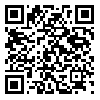Volume 22, Issue 4 (December 2024)
Iranian Rehabilitation Journal 2024, 22(4): 595-604 |
Back to browse issues page
Ethics code: IR.USWR.REC.1400.049
Download citation:
BibTeX | RIS | EndNote | Medlars | ProCite | Reference Manager | RefWorks
Send citation to:



BibTeX | RIS | EndNote | Medlars | ProCite | Reference Manager | RefWorks
Send citation to:
Azimian M, Farazi M, Nilipour R, Sayad Nasiri M, Amrevani M, Hosseinzadeh S et al . Investigating the Effectiveness of Neuropsychological Rehabilitation on Stroke Patients. Iranian Rehabilitation Journal 2024; 22 (4) :595-604
URL: http://irj.uswr.ac.ir/article-1-2061-en.html
URL: http://irj.uswr.ac.ir/article-1-2061-en.html
Mojtaba Azimian1 

 , Morteza Farazi *2
, Morteza Farazi *2 

 , Reza Nilipour2
, Reza Nilipour2 

 , Mohammad Sayad Nasiri3
, Mohammad Sayad Nasiri3 

 , Marzieh Amrevani4
, Marzieh Amrevani4 

 , Samaneh Hosseinzadeh5
, Samaneh Hosseinzadeh5 

 , Zahra Valitabar Kerati2
, Zahra Valitabar Kerati2 




 , Morteza Farazi *2
, Morteza Farazi *2 

 , Reza Nilipour2
, Reza Nilipour2 

 , Mohammad Sayad Nasiri3
, Mohammad Sayad Nasiri3 

 , Marzieh Amrevani4
, Marzieh Amrevani4 

 , Samaneh Hosseinzadeh5
, Samaneh Hosseinzadeh5 

 , Zahra Valitabar Kerati2
, Zahra Valitabar Kerati2 


1- Department of Clinical Since, School of Rehabilitation, University of Social Welfare and Rehabilitation Sciences, Tehran, Iran.
2- Department of Speech Therapy, School of Rehabilitation Sciences, University of Social Welfare and Rehabilitation Sciences, Tehran, Iran.
3- Department of Psychiatry, School of Rehabilitation, University of Social Welfare and Rehabilitation Sciences, Tehran, Iran.
4- Rofeideh Rehabilitation Hospital, University of Social Welfare and Rehabilitation Sciences, Tehran, Iran.
5- Department of Biostatistics and Epidemiology, School of Rehabilitation Sciences, University of Social Welfare and Rehabilitation Sciences, Tehran, Iran.
2- Department of Speech Therapy, School of Rehabilitation Sciences, University of Social Welfare and Rehabilitation Sciences, Tehran, Iran.
3- Department of Psychiatry, School of Rehabilitation, University of Social Welfare and Rehabilitation Sciences, Tehran, Iran.
4- Rofeideh Rehabilitation Hospital, University of Social Welfare and Rehabilitation Sciences, Tehran, Iran.
5- Department of Biostatistics and Epidemiology, School of Rehabilitation Sciences, University of Social Welfare and Rehabilitation Sciences, Tehran, Iran.
Abstract: (5509 Views)
Objectives: This study aimed to investigate neuropsychological rehabilitation’s effectiveness on stroke patients’ cognitive status.
Methods: This quasi-experimental study examined 22 adults with ischemic stroke of the left hemisphere (with an average age of 64.31 years) before and after the intervention. The patients had fluent aphasia (10 people) and non-fluent aphasia (12 people), along with cognitive disorders such as memory or attention disorder. Medical examination and para-clinical diagnosis of magnetic resonance imaging (MRI) with different causes, along with the Persian diagnostic aphasia battery bedside version (P-DAB-AQ1, 2016), were conducted. The severity of language disorder and type of aphasia were investigated using the Persian diagnostic aphasia battery (P-DAB-1) and Persian picture naming battery tests. Also, the mini-mental state examination (MMSE) test checked the cognitive dimensions. Verb network strengthening therapy, treatment of underlying forms, Persian verb, and sentence production protocol, and semantic feature analysis (SFA) for patients were also used.
Results: Findings show that the participants’ average aphasia quotient (AQ1) score increased from 74.80 to 80.12, and the average MMSE score increased from 17 to 22.59. The main variables do not follow a normal distribution (P<0.05), but the difference between scores before and after the intervention follows a normal distribution (P<0.05). Both the AQ1 and MMSE variables significantly differ before and after the intervention, according to the Wilcoxon test. The non-fluent aphasia group has a higher increase in MMSE scores than the fluent aphasia group.
Discussion: Neuropsychological rehabilitation interventions can effectively improve AQ1 and MMSE. In addition, further research on neuropsychological rehabilitation interventions with two intervention and control groups and the treatment methods used during this study can be suggested for the treatment of stroke patients.
Methods: This quasi-experimental study examined 22 adults with ischemic stroke of the left hemisphere (with an average age of 64.31 years) before and after the intervention. The patients had fluent aphasia (10 people) and non-fluent aphasia (12 people), along with cognitive disorders such as memory or attention disorder. Medical examination and para-clinical diagnosis of magnetic resonance imaging (MRI) with different causes, along with the Persian diagnostic aphasia battery bedside version (P-DAB-AQ1, 2016), were conducted. The severity of language disorder and type of aphasia were investigated using the Persian diagnostic aphasia battery (P-DAB-1) and Persian picture naming battery tests. Also, the mini-mental state examination (MMSE) test checked the cognitive dimensions. Verb network strengthening therapy, treatment of underlying forms, Persian verb, and sentence production protocol, and semantic feature analysis (SFA) for patients were also used.
Results: Findings show that the participants’ average aphasia quotient (AQ1) score increased from 74.80 to 80.12, and the average MMSE score increased from 17 to 22.59. The main variables do not follow a normal distribution (P<0.05), but the difference between scores before and after the intervention follows a normal distribution (P<0.05). Both the AQ1 and MMSE variables significantly differ before and after the intervention, according to the Wilcoxon test. The non-fluent aphasia group has a higher increase in MMSE scores than the fluent aphasia group.
Discussion: Neuropsychological rehabilitation interventions can effectively improve AQ1 and MMSE. In addition, further research on neuropsychological rehabilitation interventions with two intervention and control groups and the treatment methods used during this study can be suggested for the treatment of stroke patients.
Article type: Original Research Articles |
Subject:
Speech therapy
Received: 2023/08/31 | Accepted: 2023/12/30 | Published: 2024/12/20
Received: 2023/08/31 | Accepted: 2023/12/30 | Published: 2024/12/20
Send email to the article author





